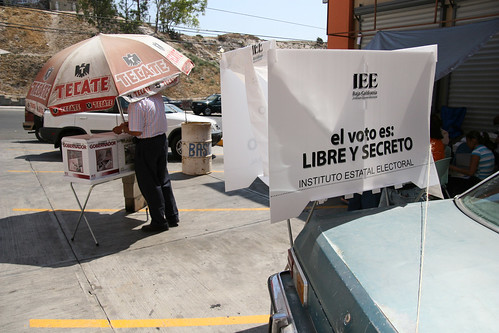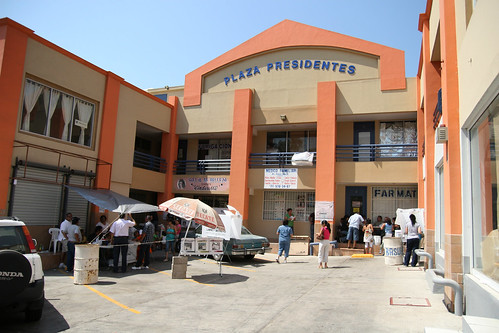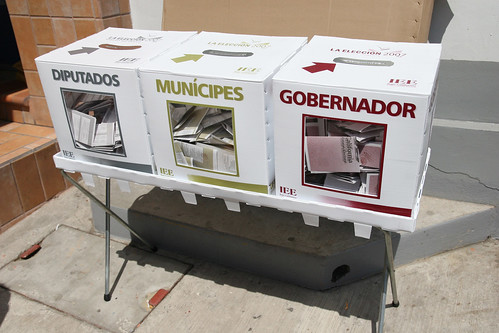We pulled into the parking space and hopped out. I slung the camera from my neck, twisting the branded strap so the words “Canon EOS Digital” didn’t show.
I’m fascinated by Mexican elections. It’s so simple and straightforward. Just paper ballots and a black crayon.
 |
I watched the 2006 presidential election count in my mother-in-law’s neighborhood. She was serving as a poll worker. Representatives from each party were present, collectively counting and sorting each ballot. The public oversight, caution and security I saw that day inspired much more faith in the final count than the electronic voting machine I would use months later.
 |
This time, I had my camera. I wasn’t quite sure if I was allowed to be wandering around photographing everything. As I tried to join Rosario in the makeshift voting booth to photograph the ballots, a poll worker asked me to move away. As I framed up a nearby shot, he told me I wasn’t allowed to take photographs.
I heard a woman mumbling a few feet away, “Ustedes viniendo acá, cochinando la elección. You people come here making it a dirty election.” I turned and asked what she was referring to. She seemed startled that I was challenging her passive-aggressive muttering. “Qué estoy haciendo mal con mi cámara? Quienes son ‘ustedes’? What am I doing wrong with my camera? Who are ‘you people’?” She didn’t catch the quotation marks in my inflection, and responded by saying “Soy ciudadana como tú. I’m a citizen same as you.” She walked away with her daughter before I could say any more.
As we got in the car to leave, I noticed a teenager in a group of poll workers with a video camera. My first thought was that the poll workers acted hypocritically, letting her shoot video but not letting me take photos. But when I realized she was shooting the license plate of our car, it all made sense. The woman had been referring to our California plates, showing contempt for us as “outsiders.”
 |

